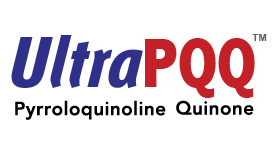 Our heart is a vital organ responsible for maintaining circulation of blood to all parts of our bodies. Blood provides life-supporting oxygen and nutrients throughout the body, including to the heart itself. As one could imagine, complete or partial blockage of the heart can lead to nutrient deprivation and suffocation of the heart, causing cardiac ischemia. Interestingly, PQQ has been shown to play a crucial role in remediating the negative effects of cardiac ischemia15-19.
Our heart is a vital organ responsible for maintaining circulation of blood to all parts of our bodies. Blood provides life-supporting oxygen and nutrients throughout the body, including to the heart itself. As one could imagine, complete or partial blockage of the heart can lead to nutrient deprivation and suffocation of the heart, causing cardiac ischemia. Interestingly, PQQ has been shown to play a crucial role in remediating the negative effects of cardiac ischemia15-19.
In a study by Zhu and fellow scientists, they found that PQQ treatment of heart cells reduced both mitochondrial depolarization and oxidative damage18. Furthermore, PQQ was shown to have a protective effect against heart damage when administered following the unblocking of an occluded cardiac blood vessel in animal models17-19. Even more remarkably, PQQ administration before and after triggering of a heart attack in mice resulted in 100% survival/recovery, whereas a significant percentage of death occurred in cohorts that did not receive PQQ (Table 2).
Another study indicated that PQQ administration ranging from 5-20 mg/kg inversely correlated to the area of damage in the heart resulting from cardiac ischemia; this indicated that the more PQQ that was given, the less of a damaging affect the cardiac ischemia caused15. These studies provide strong evidence of PQQ and its cardio-protective role. Not only does PQQ likely aid in recovery of the heart, it seems to help prevent heart damage as well.
Read about other health benefits:






